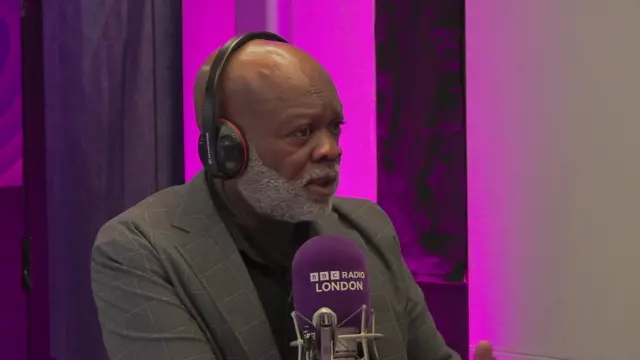Young black people stopped more than white - Rowleypublished at 11:58 BST 6 April 2023
Rowley admits young black people are stopped more than white people, on average.
"This is where we get into the under-protected, over-policed issue," he says.
He adds that positive outcomes - where a caution, weapons or drugs are found - is 28-29%.
Rowley says that rate is pretty much the same between black or white so there's not a lot of difference there.
